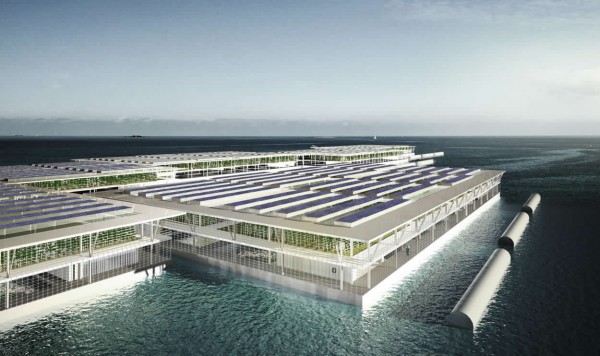
Breaking News
 EXCLUSIVE: "The HUGE Elephant In The Room Is Actually What Jeffrey Epstein Was Best At..."
EXCLUSIVE: "The HUGE Elephant In The Room Is Actually What Jeffrey Epstein Was Best At..."
 EXCLUSIVE INTERVIEW: Republican Candidate For Texas Governor "Doc" Pete Chambers Joins...
EXCLUSIVE INTERVIEW: Republican Candidate For Texas Governor "Doc" Pete Chambers Joins...
 Epstein Files Trigger Political Fallout Across Europe
Epstein Files Trigger Political Fallout Across Europe
 Conjoined twin 'influencers' who have gained more than 280,000 followers with their intimate
Conjoined twin 'influencers' who have gained more than 280,000 followers with their intimate
Top Tech News
 How underwater 3D printing could soon transform maritime construction
How underwater 3D printing could soon transform maritime construction
 Smart soldering iron packs a camera to show you what you're doing
Smart soldering iron packs a camera to show you what you're doing
 Look, no hands: Flying umbrella follows user through the rain
Look, no hands: Flying umbrella follows user through the rain
 Critical Linux Warning: 800,000 Devices Are EXPOSED
Critical Linux Warning: 800,000 Devices Are EXPOSED
 'Brave New World': IVF Company's Eugenics Tool Lets Couples Pick 'Best' Baby, Di
'Brave New World': IVF Company's Eugenics Tool Lets Couples Pick 'Best' Baby, Di
 The smartphone just fired a warning shot at the camera industry.
The smartphone just fired a warning shot at the camera industry.
 A revolutionary breakthrough in dental science is changing how we fight tooth decay
A revolutionary breakthrough in dental science is changing how we fight tooth decay
 Docan Energy "Panda": 32kWh for $2,530!
Docan Energy "Panda": 32kWh for $2,530!
 Rugged phone with multi-day battery life doubles as a 1080p projector
Rugged phone with multi-day battery life doubles as a 1080p projector
 4 Sisters Invent Electric Tractor with Mom and Dad and it's Selling in 5 Countries
4 Sisters Invent Electric Tractor with Mom and Dad and it's Selling in 5 Countries
Floating farm of the future to produce 20 tons of vegetables a day

(Natural News) There is a massive problem threatening mankind's future: The Earth's population continues to grow at an unprecedented rate, and our food supply is simply not keeping pace. The total number of people on the planet is expected to reach 8.3 billion by 2030, and by 2050, demand for food will likely have increased by 70 percent. There is clearly a need for innovative ideas to meet this challenge, and a company called Forward Thinking Architecture has risen to the occasion.
A desire to use clean, sustainable energy to produce healthy food which can be sold directly to consumers, eliminating the need for both storage and delivery, gave birth to the idea of the Smart Floating Farm. The concept has already become popular on a smaller scale in the form of vertical hydroponic farms, but the Smart Floating Farm takes the idea to a whole new level.
Forward Thinking Architecture describes floating farms as "a new initiative which can be complementary [sic] and compatible with other existing production methods in order to help reduce food risk associated problems in different areas of the globe." (RELATED: With the population boom outpacing the growth of our global food supply, it is important to be self-reliant. Stay informed at Preparedness.news.)
The Smart Floating Farm, for which Forward Thinking Architecture won a Sustainable Entrepreneurship Award (SEA) in 2016, produces upwards of 8,000 tons of vegetables each year. Smaller floating farms can be anchored to land in locations all over the world. Each farm floats on a body of water and consists of three tiers. Right at the top is the photovoltaics level which harnesses clean sources of energy like solar power. The crops are grown in the middle level using hydroponics, and this is also the level which people will be able to visit to learn about the process as well as to buy fresh produce. Finally, the lower level is utilized for aquaculture, which is the production of fish and other species.
The Smart Floating Farms come with a slew of benefits, not least of which is the fact that since hydroponics are used, there is no need for the use of chemical pesticides or fertilizers. Another great benefit is the fact that the multi-level strategy results in a higher yield per meter, freeing up land space for other purposes. Water consumption is also greatly reduced, since the water used in the process is what's floating under the platform already.



